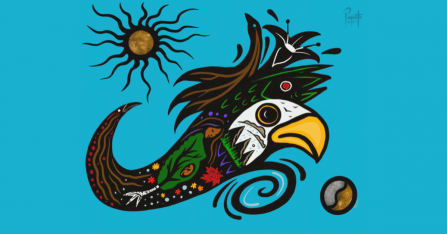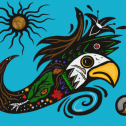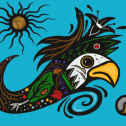On June 21, we acknowledge the ongoing, fierce advocacy of our Indigenous members and Indigenous communities across the country. CUPE acknowledges that it is more important than ever to respect the rights of Indigenous peoples to their unceded territories, as well as to preserve and protect their cultures and languages.
CUPE stands in solidarity with Indigenous nations, communities and organizations and is committed to continuing to work toward reconciliation, and to respect our ongoing treaty relationships.
As part of our ongoing efforts to foster reconciliation in our workplaces and communities, we encourage all CUPE members to participate in National Indigenous Peoples Day by sharing in events on the day, and to take time to learn and reflect on the ongoing harm caused by colonialism and Canada’s treatment of Indigenous peoples.
Water is life
CUPE’s Water is life resources help members listen, learn and act alongside Indigenous communities to ensure access to safe, clean drinking water for all. Many Indigenous communities still face unsafe water, natural disasters and environmental racism that make this work urgent.
What CUPE locals and members can do:
Educate:
- Read the Truth and Reconciliation Commission Final Report and consider how you can support the calls to action.
- Invite a speaker to your next virtual or in person meeting to talk about truth and reconciliation.
- Stay in the loop: CUPE is developing a new suite of Indigenous Cultural Safety workshops that will be available soon.
- Read CUPE’s response to the Final Report of the National Inquiry into Missing and Murdered Indigenous Women and Girls.
Bargain:
- Use CUPE’s Truth and Reconciliation bargaining guide to bargain language supporting Indigenous workers into collective agreements.
Act:
- Acknowledge Indigenous territory at all your meetings, and reach out and forge partnerships with local Indigenous communities and organizations.
- Keep pressure on the federal government to implement their action plan to address the findings of the Final Report of the National Inquiry into Missing and Murdered Indigenous Women and Girls, the Truth and Reconciliation Commission’s 94 Calls to Action and the United Nations Declaration on the Rights of Indigenous Peoples Act.
- Take the steps outlined in Walking the talk: A practical guide to reconciliation for CUPE locals to better include Indigenous members in our union and take concrete action toward reconciliation with Indigenous peoples.








